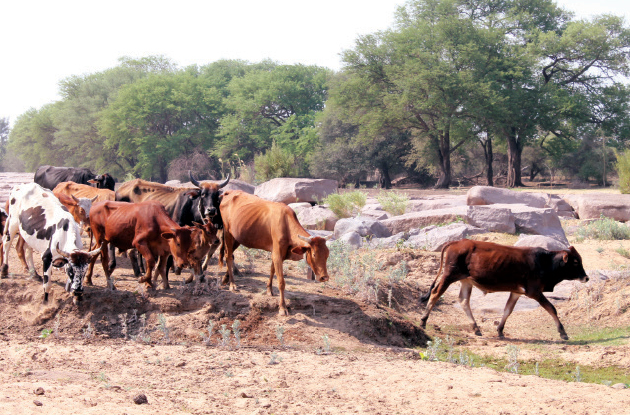Zim loses 3 430 cattle to tick-borne diseases

Harare Bureau
ZIMBABWE has lost at least 3 430 cattle to tick-borne diseases between November 2017 and May 2018, with Mashonaland East recording the highest deaths.
According to the Department of Veterinary Services farmers are losing cattle to Theileriosis (popularly known as January disease), babesiosis, heartwater, anaplasmosis and sweating sickness.
January disease is the major killer. Theileriosis has killed 1 751 cattle, babesiosis 235, heartwater 816, anaplasmosis 596 and sweating sickness 32 countrywide.
Mashonaland East has the highest cases of tick-borne diseases recorded. The DVS said there were 2 698 cases with 1 441 deaths recorded.
Chikomba area has been severely affected with 1 249 cases and 761 deaths reported.
DVS deputy director Dr Chenjerayi Njagu said the number of the animals lost could be higher as there was a lot of under reporting as some farmers did not report to the veterinary staff on the ground. He said the majority of animals that were reported as sick (cases) also died after reports had already been made to the department.
“Owners usually do not bother to go back to veterinary services to report that an animal that had been reported as sick has died,” he said.
He said most animals were dying as farmers were having challenges accessing drugs to treat and in other cases the drugs were not readily available.
“The problem is mainly as a result of erratic dipping experienced in most areas during the last rain season due to shortage of dip chemicals in the country,” said Dr Njagu.
Some farmers have resorted to selling them at give-away prices before they succumb to diseases.
Most dip tanks are not offering the recommended weekly dipping due to lack of dipping chemicals. There is also a low turnout at dip tanks. Some farmers are not willing to take their cattle for dipping at the communal dip tanks while some prefer conducting the operation themselves, but may do it in the wrong way and this is not effective in controlling ticks.
The other challenge cited by the veterinary officers on the ground is that there are fake chemicals on the market and some farmers cannot tell the difference as the packaging and labelling is the same.
Farmers are supposed to pay a dipping fee of $2 per animal per year. The DVS has carried out awareness campaigns to encourage farmers to dip their cattle but some farmers complain that the $2 per animal per year was beyond their reach.
It costs around $60 to buy treatment of tick-borne disease and the medication can only be administered to three head of cattle.











Comments